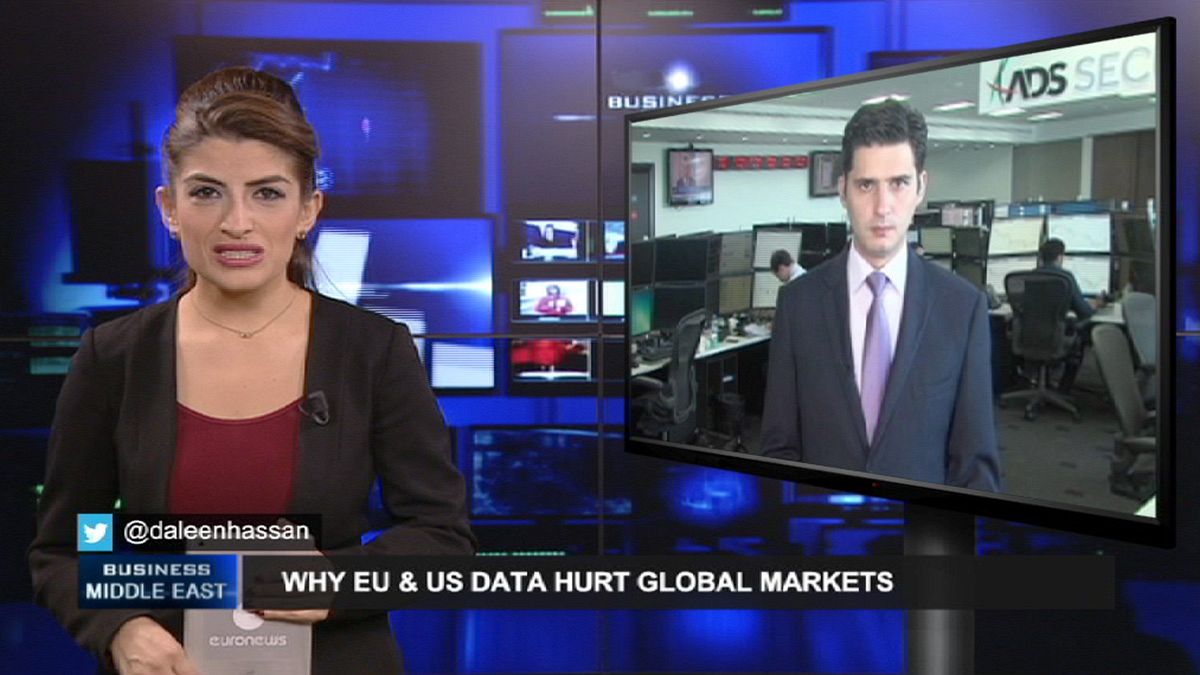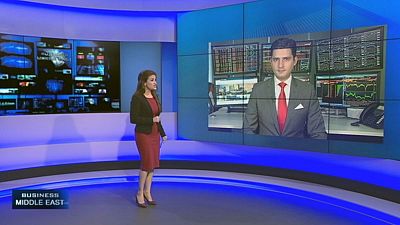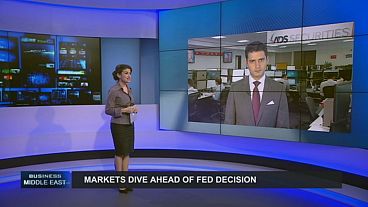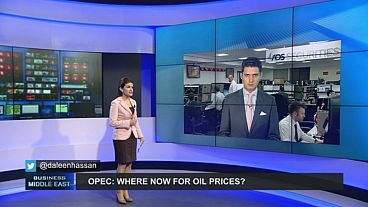At last week’s interest rate announcement the European Central Bank President Mario Draghi’s tone seemed unencouraging, his message hinting at
At last week’s interest rate announcement the European Central Bank President Mario Draghi’s tone seemed unencouraging, his message hinting at deflationary pressure on the European economy, and a continuation of the quantitative easing programme after 2016. It was disappointing news for European stock markets and, combined with a so-so US jobs report, it led to markets on both sides of the Atlantic ending the week in the red.
The two events also cast a shadow over stock and currency trading in the Middle East.
As expected, the ECB stuck to its current policy, keeping the interest rate unchanged at a record low of 0.05% on September 3rd.
Raising the ceiling
However ECB President Mario Draghi announced the Bank would raise the ceiling of its ownership of sovereign bonds to 33% from 25%. The monthly purchases remains the same at 60 billion euros. But this announcement by Draghi suggested the ECB woud maintain quantitative easing beyond 2016. The euro lost nearly 1% against the dollar, while stocks rose initially after Draghi’s comments, but ended the week down with most European markets falling by around 2%.
In the United States, the mixed-news August jobs report showed 173,000 jobs had been added, less than expected, but that the unemployment rate fell to 5.1%.
These numbers increased uncertainty about over the Federal Reserve’s aim to raise interest rates soon. After the job report US stocks closed lower. The Nasdaq, the S&P 500 and The Dow Jones incurred losses over the course of the week, ending down more than three percent.
These global trends cast a shadow over the Middle East region, finished negatively and then also opened again in the red.

Kuwait and Egypt opened the week down more than 1.50% 0.30% respectively. Saudi Arabi and Abu Dhabi began positively, both over half a percent up. That came after the Saudi government’s announcement that will allow foreign investors to own retail and wholesale businesses 100%, in a move to attract investment and diversify its economy.
Abu Dhabi view
For more insight on stock markets trends, BME#s Daleen Hassan got the views of Nour Eldeen al Hammoury, chief market strategist at ADS securities ,Abu Dhabi. Daleen Hassan“Nour, months after the start of quantitative easing, mixed data from the eurozone shows the difficulties the ECB is having in boosting inflation. Are stimulus policies working and how do you see EU markets performing after Draghi statements?” Nour Eldeen al Hammoury “Its still to early to say whether the ECB’s QE programme is a success or a failure. It’s true that there’s been a lot of mixed data over the past few weeks, some are positive and some negative. However, falling inflation is due to the recent decline in energy prices. The good thing is that core Inflation remained stable for the past four months. “The ECB president’s remarks were dovish in general. However, it was good enough for the stock market to rally on Thursday, as the markets saw the increasing of the QE limit to 33% from 25% as a hint for a future expansion of the QE.
“But, the markets couldn’t hold onto these gains and lost them directly the next day as the ECB purchases remained unchanged, in addition to cutting the growth and inflation estimates. Therefore, we’re still looking for further evidence QE is working.”
Daleen Hassan“As you know they say “bad news is good news for the market.” Why did the US jobs report not help Wall Street last week?” Nour Eldeen al Hammoury“Yes that’s right, there are periods when the stock market reaction to bad news is positive, as traders and investors believe that a rate hike is not coming anytime soon and that the accommodative policies are here to stay. However, this has changed recently, especially as the debate of the first rate hike by the Fed continued and the market remains uncertain. Therefore, this correlation has changed to positive, meaning positive figures are considered as good news, while the bad numbers are considered as negative news, as everyone is waiting for the Fed’s decision in the coming weeks.” Daleen Hassan“Considering the uncertainty in US and European equities markets, and lower oil prices, on what basis can investors in the Middle East make sound trading decisions?” Nour Eldeen al Hammoury “Everyone is bracing for the Federal Reserve’s decision in the coming weeks, which remains key for the upcoming months, maybe until the end of the year. The Fed decision may lead to further interventions in the emerging markets, especially after they were hurt by expectations of a rate hike. The Fed hasn’t raised them yet and it might not happen soon. . “Here we would like to encourage traders and investors not to overreact and not to overestimate the upcoming decisions of the central banks, especially the Fed’s decision in September, as the latest decline in global equities was driven by such estimates, in addition to the fears from China. “The same applies to the MENA equities, markets are still uncertain about crude oil prices, despite the fact that oil rallied by more than 20% in the past few days. However, it failed to stabilize the markets.”
If you have any question about this story, let us know on our Social networks. You can follow @DaleenHassan or @NourHammoury on Twitter or use #BusinessMiddleEast
Tweets sur #businessmiddleeast !function(d,s,id){var js,fjs=d.getElementsByTagName(s)[0],p=/^http:/.test(d.location)?'http':'https';if(!d.getElementById(id)){js=d.createElement(s);js.id=id;js.src=p+"://platform.twitter.com/widgets.js";fjs.parentNode.insertBefore(js,fjs);}}(document,"script","twitter-wjs");



